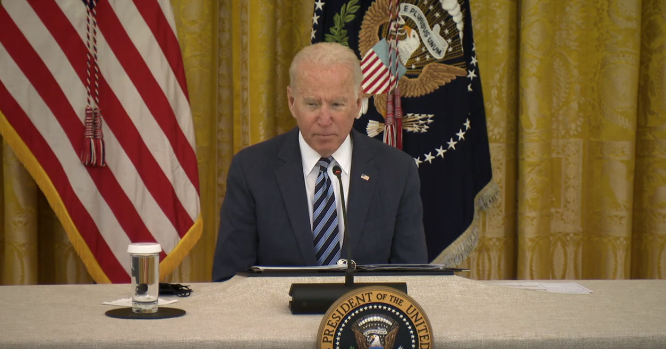 EMERGING TECH
EMERGING TECH
 EMERGING TECH
EMERGING TECH
 EMERGING TECH
EMERGING TECH
U.S. President Joe Biden has signed a National Security Memorandum aimed at maintaining leadership in quantum information science and mitigating the risks of quantum computing to national security.
The memorandum released Wednesday details both the benefits and risks of quantum computing, with the risk that quantum computing, specifically cryptoanalytically relevant quantum computers, will be able to break public-key cryptography used in digital systems. The memo states that these computers could jeopardize civilian and military communications, undermine supervisory and control systems for critical infrastructure and defeat security protocols on internet-based financial transactions.
Positives of quantum computing are listed as the ability to drive innovation across the economy in fields such as material science, pharmaceuticals, finance and energy. It’s claimed that America’s continued technological and scientific leadership will depend on its ability to maintain a competitive advantage in quantum computing and quantum information science.
The memo states that it’s the administration policy to maintain U.S. leadership in QIS through continued investment, partnerships and a balanced approach to technology promotion and protection. Secondly, the administration says, it’s committed to mitigating the threat of quantum computing through a timely and equitable transition of cryptographic systems to interoperable quantum-resistant cryptography.
The memo details a multidepartmental and agency effort to migrate all vulnerable cryptographic systems to quantum-resistance cryptography to pursue the policies objectives. General Paul M. Nakasone, the director of the National Security Agency, will oversee the process.
“A cryptanalytically relevant quantum computer could jeopardize civilian and military communications as well as undermine supervisory and control systems for critical infrastructure,” Nakasone said in a statement. “The No. 1 defense against this quantum computing threat is to implement quantum-resistant cryptography on our most important systems.”
Along with broad statements on encouraging education, research and development of QIS, the memo also directs the National Institute of Standards and Technology to work with industry to achieve the goals.
“This is a great, proactive, further step in preparing the U.S. for the threats from sufficiently capable quantum computers,” Roger Grimes, data-driven defense evangelist at security awareness training company KnowBe4 Inc., told SiliconANGLE. “While no one, at least publicly, knows when the threat of quantum computers will be realized, we all know that it is sooner than later.”
Quantum computing certainly gets a lot of buzz, but it’s still a nascent technology. Today, many companies that offer so-called quantum computing products primarily do so in name only. In March, acclaimed physicist Professor SanKa Fas Sarma wrote in the MIT Technology Review that quantum computing today hasn’t reached the standard of being able to solve a problem that anyone cares about. He makes the comparison that today’s so-called quantum computers, while a tremendous scientific achievement, are akin to trying to make today’s smartphones with vacuum tubes from the early 1900s.
Although Sarma notes how difficult it is to achieve full quantum computing, most believe it’s only a matter of time until the technological hurdles are surpassed.
“Most quantum experts put the eventuality of quantum computers breaking much of today’s cryptography at 10 years or less,” Grimes noted. “I do not think anyone would be shocked if it happened in five years or less. Personally, I think we are talking only a few years. Every single company in the world should right now be preparing to convert their systems to quantum-resistant protections.”
THANK YOU